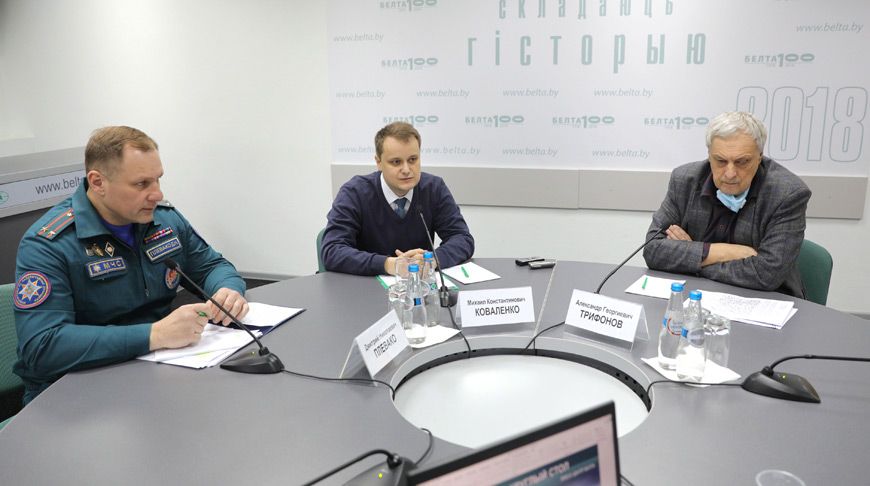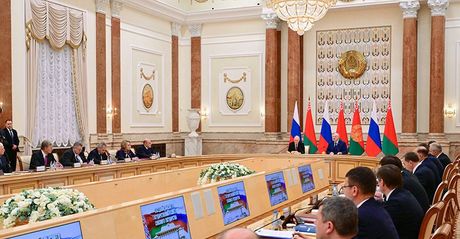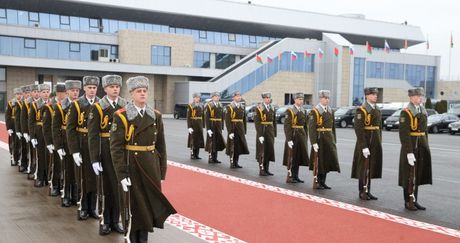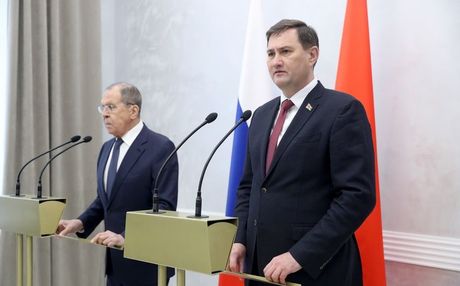Radiation situation in Chernobyl-affected areas in Belarus stable
18:09, 15 April

Photo: BelTA
The radiological situation in the territory of Belarus affected by the Chernobyl accident is stable, Mikhail Kovalenko, Head of the Radiation Monitoring Service of the National Center for Hydrometeorology, Radioactive Contamination Control, and Environmental Monitoring of the Belarusian Natural Resources and Environmental Protection Ministry, said at a roundtable session hosted by BelTA's press center on 15 April.
- Share on Facebook
- Share on VK
- Share on Twitter
At present, radiation monitoring of atmospheric air is carried out with the help of a network of 41 permanent observation points of the Natural Resources and Environmental Protection Ministry. Gamma radiation levels are measured daily. Twenty-five points sample radioactive rainfall, another ten – aerosols of surface air. Radiation monitoring of surface waters is conducted at six observation points (by rivers in the radiation-polluted areas). Seven points keep track of transboundary surface waters. A total of 39 observation points keep an eye on radiation levels in soil. Eighteen more points analyze the distribution of radionuclides in the soil profile. “The preliminary results of the monitoring show that in the course of more than thirty years since the Chernobyl accident the radiological situation in the country has stabilized. Of course, there are territories with background radiation levels above the norm that require special treatment,” Mikhail Kovalenko noted.
The expert also said that apart from permanent observation points, there are automated radiation monitoring systems in Belarus. Four of them are located in observation areas of nuclear power plants of the neighboring states and one more in the area of the Belarusian nuclear power plant.
“The construction of the Belarusian nuclear power plant has become another milestone in the development of radiation monitoring in Belarus. We have set up three additional points to measure radioactive rainfall and aerosols, three more to sample surface waters, and another four to carry out radiation monitoring of soil in the area near the plant,” Mikhail Kovalenko said.






